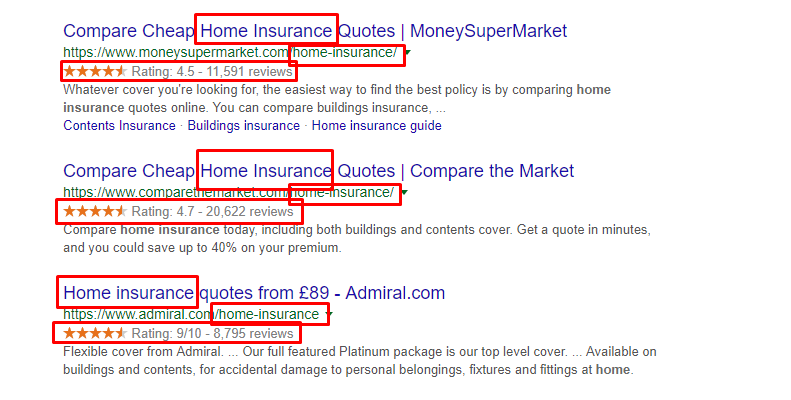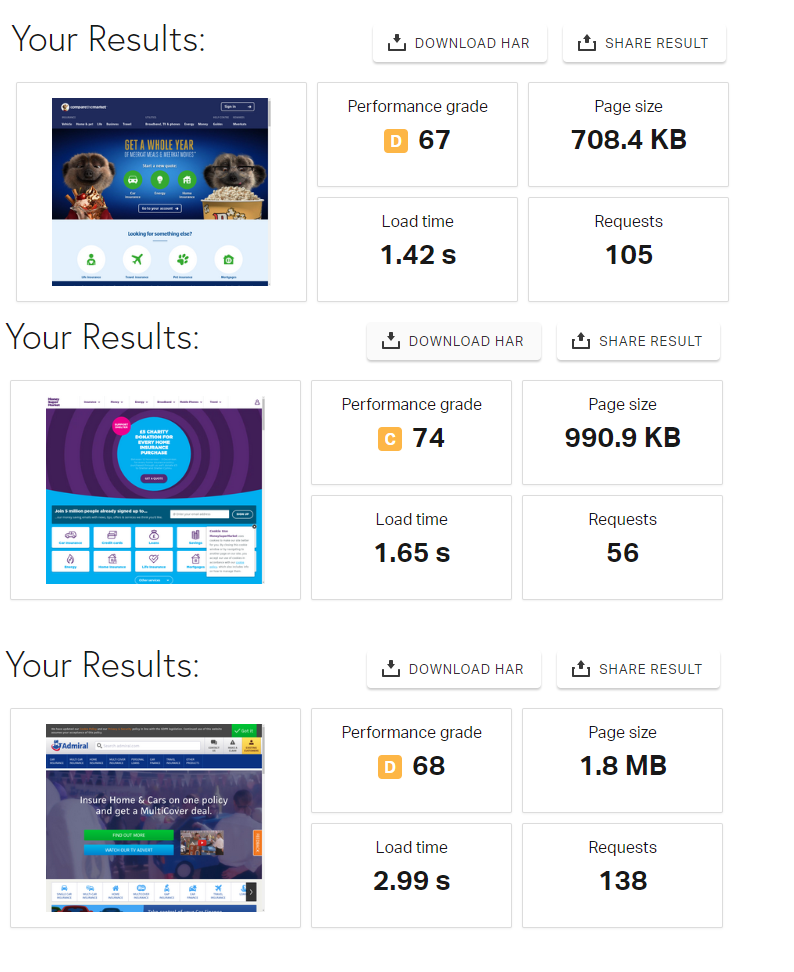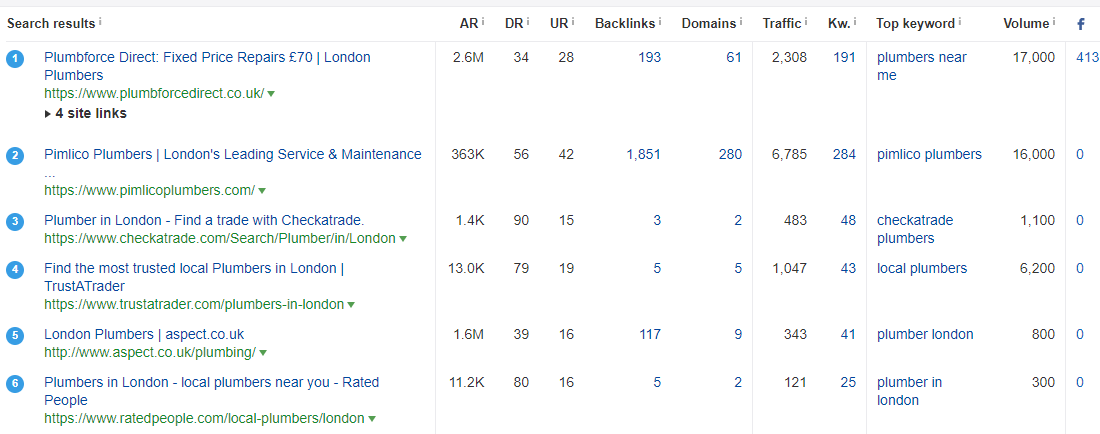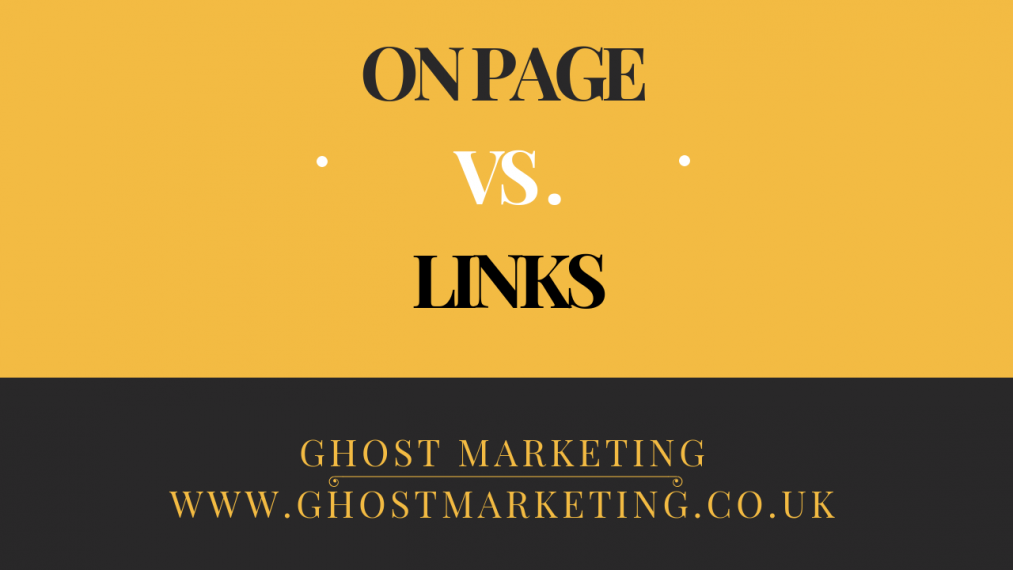Before we get started let’s clear up one obvious point: You need both.
For the greatest ROI from search engine optimisation rankings POV you need: great technical SEO, smooth on-page optimisation, great content, good site architecture, awesome UX and powerful, relevant backlinks.
But.
If we were to look into the data and try to understand what’s more valuable or relevant to your certain business scenario out of on-page optimisation or link building – What would we get?
In this post I’ll try to build out a (slightly) unbiased argument for both. To start;
Contents
Why Are Backlinks So Important?
In short, they are the determining factor for the majority of competitive industries and keywords. Technical SEO and on-page optimisation can be improved to a certain point, but unless your website has “votes” of confidence from other powerful, relevant sites (links) then it’s never going to rank.
If you look at the SERPs for any high level keyword, let’s take “home insurance” for example as I love hyper competitive niches because they teach us so much about real SERP rankings and mistakes at this level cost millions not a few thousand.

If you have a look at this SERP the top 3 ranking results are almost identical from an title and URL optimisation point of view. URL’s are identical, titles are very similar with the primary keyword, CRO element and a branded part.
As well as this they also have very similar meta descriptions and similar schema with review mark-up in place. In short, they are pretty much identical.
Comparing Site Speed
Having a look into these 3 sites from a site speed optimisation doesn’t give us much to distinguish between them either – With Admiral being the slowest (interestingly they are the lowest ranked too). Screenshots from Pingdom.

As a result if the top ranking sites for these ultra high competition keywords are so similar, what has to be the determining factor? – Obviously it’s going to be links.
Interestingly in Ahref’s analysis of 2M keywords in 2016 they found very little correlation between on-page optimisation factors and organic search rankings. The SEO community didn’t actually take this all that well, but data doesn’t lie.
In our example of home insurance above we can see this is very similar, with an almost exactly aligned to overall DR (domain rating of the entire website itself), individual links to that page, individual referring domains to that page as well.

The number of keywords each page ranks for is always an interesting column too. This is in regards to Google’s hummingbird update a few years ago. This is why you see one or two URL’s dominate a SERP rather than multiple single keyword target pages. This is one of the reasons we advocate content domination pieces in our link building strategies rather than targeting hundreds of pages for your link building efforts.
The above screenshots are all from Google.co.uk search results for this keyword.
If we take a look at the search results from Google.com and hence the US version (for the same term) it shows a very similar scenario, in fact one that is almost identical.

So, in short if you’re going after a hyper competitive niche then links are and will always be (for the foreseeable future) the number 1 determining ranking factor (which is why it’s the only service we offer).
Less Competitive SERPs
Although the data is quite one sided when it comes to competitive niches and the on-page optimisation vs off page or link building argument. There’s one saving grace and that’s the less competitive serps (esp the local search results).
Moving into 2019 Google is starting to use DIFFERENT algorithms for each type of search. For example a massive national/international commercial search such as home insurance, online supplements etc is going to have a very different algorithm to the local search results.
For example, the below screenshot is for the keyword: plumber in London a very specific locationally service business keyword. As you can see the competition is a lot less but also doesn’t align as clearly as the larger national competition search terms.

This is due to their being other locationally ranking factors that are *generally* more granular in detail, I won’t get into local SEO in detail, although we have a good guide on local link building for anyone who is interested.
As a result – You want to always reverse engineer your competition before building out your search engine optimisation and link building strategies. If you are focusing on analysing national search terms for your local level marketing, this is a huge mistake that should be avoided.
Conclusion
I believe it depends on your budget and competition whether link building is the best investment for you or if you should invest into technical SEO and on-page optimisation instead. If you have the budget to target larger keywords and the cash flow to wait for the large ROI’s in the future, then link building is 100% the way to go for your particular business.
If you are just getting started and the website structure, site content and more needs some work then I’d say your best (both time and capital) investment is better off going into technical SEO and on-page optimisation.
